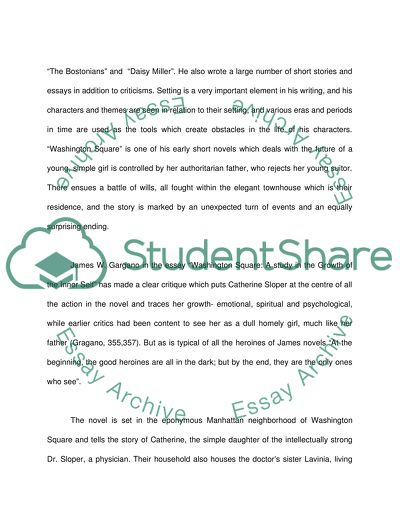Cite this document
(Coming of Age Essay Example | Topics and Well Written Essays - 2000 words, n.d.)
Coming of Age Essay Example | Topics and Well Written Essays - 2000 words. Retrieved from https://studentshare.org/literature/1550736-the-coming-of-age-of-caherine-sloper-in-washington-square-and-huck-finn-in-hucklberry-finn
Coming of Age Essay Example | Topics and Well Written Essays - 2000 words. Retrieved from https://studentshare.org/literature/1550736-the-coming-of-age-of-caherine-sloper-in-washington-square-and-huck-finn-in-hucklberry-finn
(Coming of Age Essay Example | Topics and Well Written Essays - 2000 Words)
Coming of Age Essay Example | Topics and Well Written Essays - 2000 Words. https://studentshare.org/literature/1550736-the-coming-of-age-of-caherine-sloper-in-washington-square-and-huck-finn-in-hucklberry-finn.
Coming of Age Essay Example | Topics and Well Written Essays - 2000 Words. https://studentshare.org/literature/1550736-the-coming-of-age-of-caherine-sloper-in-washington-square-and-huck-finn-in-hucklberry-finn.
“Coming of Age Essay Example | Topics and Well Written Essays - 2000 Words”. https://studentshare.org/literature/1550736-the-coming-of-age-of-caherine-sloper-in-washington-square-and-huck-finn-in-hucklberry-finn.


